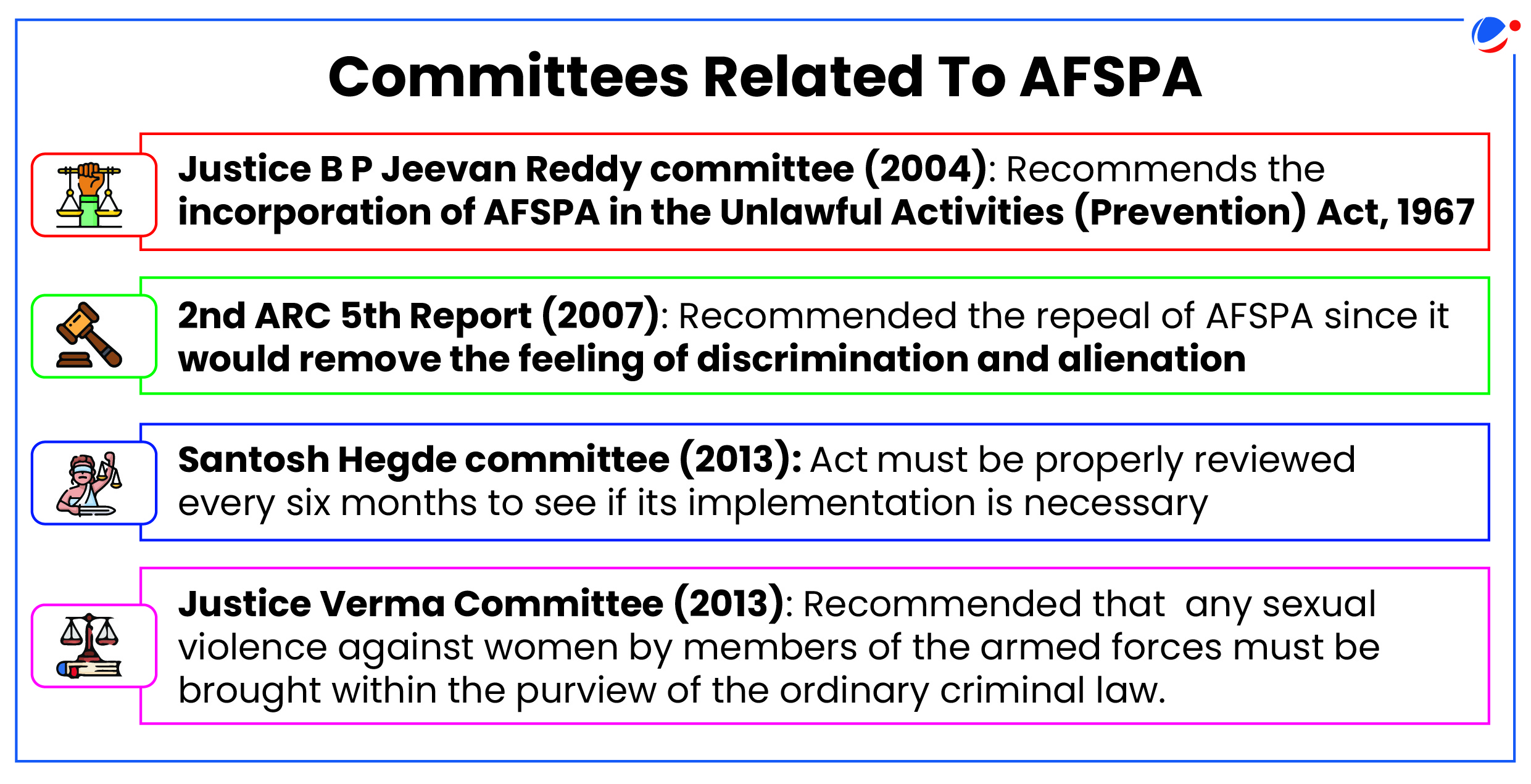Why in the news?
The Armed Forces (Special Powers) Act, 1958 (AFSPA) has been extended by the Centre to eight districts in Nagaland and three districts in Arunachal Pradesh.
More on News
- Currently, AFSPA is in effect in parts of Nagaland, Assam, Manipur, and Arunachal Pradesh.
- Also, AFSPA remains in force in Jammu and Kashmir through the Armed Forces (Jammu and Kashmir) Special Powers Act, 1990.
- However, it was lifted from Tripura in 2015, Meghalaya in 2018 and Mizoram in the 1980s.
About AFSPA, 1958
- An Act to enable certain special powers to be conferred upon members of the armed forces in disturbed areas in the State of Arunachal Pradesh, Assam, Manipur, Meghalaya, Mizoram, Nagaland and Tripura that lies in the North Eastern sector.
- Power to declare areas to be disturbed areas under Section 3 of the Act: Governor of that State or the Administrator of that Union territory or the Central Government, as the case may be, may, by notification in the Official Gazette, declare the whole or such part of such State or Union territory to be a disturbed area.
- Disturbed area is an area in such a disturbed or dangerous condition that the use of armed forces in aid of the civil power is necessary.
- Special powers of the armed forces under Section 4: Any commissioned officer, warrant officer, non-commissioned officer or any other person of equivalent rank in the armed forces is given "special powers" under AFSPA, although they must be exercised with extreme caution.
- After giving due warning as considered necessary, Fire upon or use force, even causing death, against any person acting in contravention of laws:
- Prohibiting assembly of 5 or more persons
- Prohibiting carrying weapons or firearms/ammunition/explosives.
- If reasonable suspicion exists, can also arrest a person without a warrant; enter or search a premises without a warrant
- Unless otherwise authorized by the central government, Army soldiers operating under the AFSPA are shielded from all legal actions.
Whether AFSPA is to be repealed?
Arguments in favour of Repealing AFSPA | Arguments Against Repealing AFSPA |
|
|

Way Forward
- Building trust and confidence: Implement a bottom-up governance model to empower grassroots communities and bridge gaps between people and government.
- Prioritizing Peace Accords: To remove AFSPA, first, the government must push for formalising a concrete peace accord with such insurgent groups and this can be done by providing proper rehabilitation.
- Enhanced Connectivity: It will directly impact the security scenario of India's North East and in the long run, will contribute to the complete removal of AFSPA.
- Adherence to human rights norms which strengthens the counterinsurgency operations.






